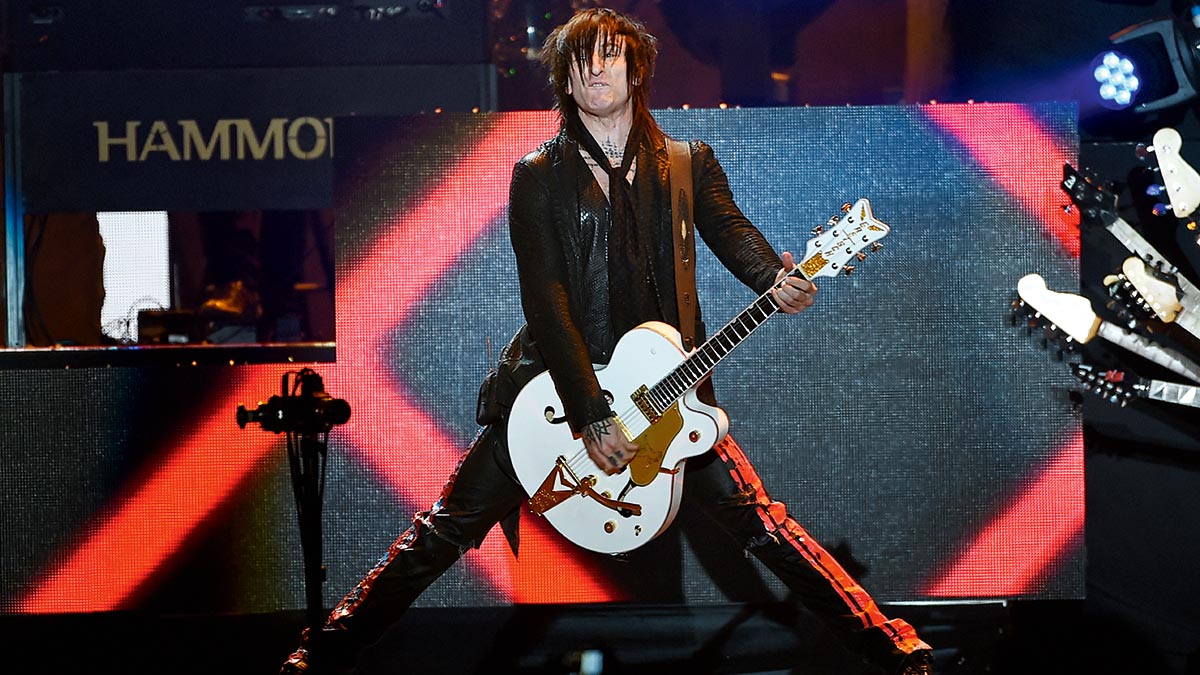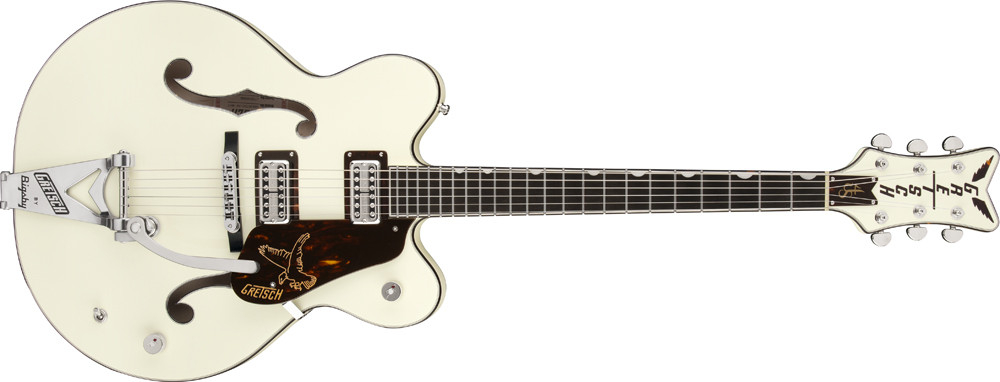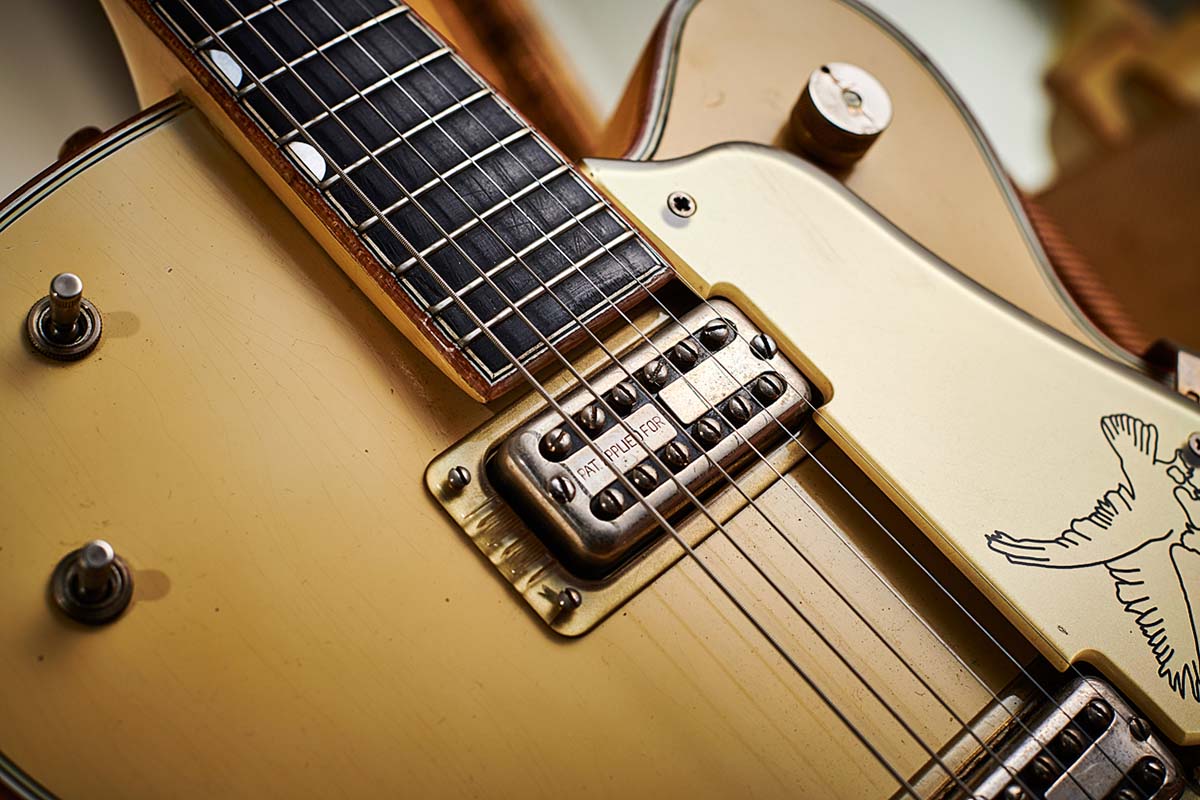Richard Fortus: "Gretsch were in rehearsals with us, winding pickups on the spot while I was trying them out"
The Guns N’ Roses guitarist on how he developed the hybrid PAF/Filter’Tron pickups for his signature Gretsch Falcon

Richard Fortus’s use of Gretsch Falcons on stage with Guns N’ Roses is regarded as a benchmark of hard-rock tone: the bottom- and top-end prominence of the Filter’Tron humbuckers in his Players Edition models tessellate perfectly with Slash’s midrange-focused sounds.
With much excitement brewing about the forthcoming release of the Richard Fortus signature Gretsch Falcons and their bespoke pickups, we decided to check in with the man himself to find out how he managed to nail down a tone that’s fit for one of the world’s most celebrated rock ’n’ roll bands.
“The signature models are going to be coming out around September/October,” Richard tells us. “I’m so excited about these pickups – they really sound incredible. I’m really excited about what we came up with. The guitars are great. Gretsch have been amazing.
“Earlier this year, Gretsch were in rehearsals with us, and they were winding pickups on the spot while I’m trying them out. We had a cycle of four different guitars, as well as my normal live guitars to compare them to. Plus, when you’re on in-ears, you’re listening under a microscope.“

“You can hear every detail. Our front-of-house engineer was in the other room in a control room environment, so he was listening, too, and giving us feedback. We’d go back and forth zeroing in on the perfect tone. Gretsch were amazing. They were as tenacious as I was in trying to find the perfect blend.
“We had tried out different pickups from a bunch of manufacturers like TV Jones and Arcane and a few others,” Richard says. “The Arcanes sound amazing in my fully hollow guitars – the standard [Gretsch] Players Edition Falcons that I use live – but they didn’t sound the same with a centre block. So when we put them in my [signature] guitar they just didn’t sound as good.“

“It’s interesting how that affected it; it lost some of the sparkle and became more mid-focused. The Mojotone Mojo’Trons we tried also sounded good, but they weren’t quite there – I was still missing some of that sparkle I got from my regular Falcons. At the same time, I wanted it to be a bit rounder-sounding and not so pointed for lead stuff, so it was a delicate balance.
Get The Pick Newsletter
All the latest guitar news, interviews, lessons, reviews, deals and more, direct to your inbox!
“We came up with a construction that is a hybrid of a vintage-style PAF and a Filter’Tron. It’s a very unique-sounding pickup, but it gives me all of the detail from a Filter’Tron I want. When you roll the volume down to around 7, you’re very much in classic Filter’Tron territory, and as you bring the volume up you get more of that round PAF thing.
“It’s about the same output as a vintage PAF. The more windings you put on a pickup, the hotter it becomes, and also the more mid-focused it becomes. And that’s sort of the opposite of what I’m going for. But the thing about lower-output pickups is that when you goose them going into the amp by boosting the signal, they can sound huge.“
“Slash and I are always riding the volume controls. We rely on that a lot. So another thing I did with Gretsch that was really important to me was to get the signal to clean up correctly.
“We have been experimenting with different treble bleed caps and eventually found the perfect one. But the linear taper pots don’t clean up in the same way. I use audio taper in my own guitars, so that’s what Gretsch agreed to put in my signature Falcons. And it makes all the difference.”
Richard is always on the trail of interesting guitar tones and the creative possibilities they endow, and is currently working on another twist on the classic Filter’Tron design.
“I’ve been experimenting with an Alnico VIII magnet in a Filter’Tron construction,” he reveals. “It looks great on paper – it should sound good – but I’m still messing around with that. Since there aren’t many windings on a Filter’Tron, I think a more powerful magnet would really suit it. But I haven’t finished it yet. I’m working on this with my friend John Gaudesi at Gretsch. He’s the guy who helped develop the pickups in my signature Falcons.”
Rod Brakes is a music journalist with an expertise in guitars. Having spent many years at the coalface as a guitar dealer and tech, Rod's more recent work as a writer covering artists, industry pros and gear includes contributions for leading publications and websites such as Guitarist, Total Guitar, Guitar World, Guitar Player and MusicRadar in addition to specialist music books, blogs and social media. He is also a lifelong musician.



![[from left] George Harrison with his Gretsch Country Gentleman, Norman Harris of Norman's Rare Guitars holds a gold-top Les Paul, John Fogerty with his legendary 1969 Rickenbacker](https://cdn.mos.cms.futurecdn.net/TuH3nuhn9etqjdn5sy4ntW.jpg)







